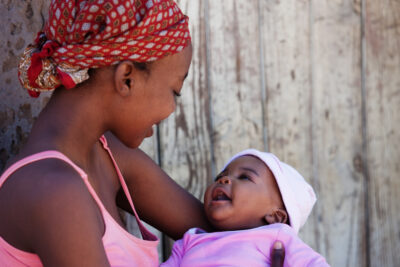Partnering with Project C.U.R.E., Dr. D’Ambrosia is educating others to lower infant and maternal death rates in underserved countries.
 For years I have been searching for an organization with a mission I could be passionate about, that I believed in. I’ve worked previously with nonprofit health organizations that have physicians go to clinics and, essentially, take care of people for five days. While those have their place, I don’t think they were my place.
For years I have been searching for an organization with a mission I could be passionate about, that I believed in. I’ve worked previously with nonprofit health organizations that have physicians go to clinics and, essentially, take care of people for five days. While those have their place, I don’t think they were my place.
I did not feel like I helped the people of that underserved country long-term – I helped them for a week and then left. I have been searching for an opportunity to make a lasting change in countries that lack the resources necessary to provide sustained care. That is how I got involved with Project C.U.R.E.
Making a sustainable change in maternal mortality
A wonderful nurse at Rose Medical Center, where most of our deliveries occur, introduced me to Project C.U.R.E. and a much-needed program, Helping Mothers Survive. Dr. James Jackson founded Project C.U.R.E. in 1987 in Colorado when his work as an international economic consultant in developing countries put him face to face with the needs of the sick and dying. Project C.U.R.E. now has distribution centers across the United States. They also partner with a broad portfolio of partners to distribute donated medical equipment and supplies to low resource health facilities in over 130 countries.
Project C.U.R.E. has expanded their programmatic footprint to provide train-the-trainer learning modules designed to improve and sustain the skills of local nurses, doctors and providers who assist in pregnancy, labor and delivery. The objective is to reduce maternal and neonatal mortality.
After attending a Project C.U.R.E. Helping Mothers Survive Bleeding After Birth Complete (BABC) course in Chicago last year, it clicked. I found the organization that was making a meaningful change I had been searching for.
Learning to teach others, in order to teach others
Project C.U.R.E. provides courses for providers like me, to learn how to teach a set of skills. The modules help us teach providers in underserved countries the skills necessary to help lower infant and maternal death rates.
In resource-limited countries, there is a higher maternal mortality rate, which in turn increases the infant mortality rate. If the mother dies, the chances of her baby surviving diminishes. That’s why they created Helping Mothers Survive. Currently, there are two programs, with more coming. These programs are focused on: Helping Mothers Survive Bleeding after Birth Complete and Helping Mothers Survive Preeclampsia and Eclampsia.
Bleeding after birth, or internal hemorrhaging, is the leading cause of maternal mortality across the globe. If we can provide better training for the people in countries where many of these deaths occur, we can lower that mortality rate. But first, we have to train people on how best to provide that education to those in-country providers.
Repetition is key in improving women’s health
The modules are focused on low-dose, high-frequency training. This means that there is repetitive hands-on practice throughout the workshops. It builds and retains competency of the skills taught. To responsibly implement these training modules, it takes focus, commitment and determination.
Using proven implementation strategies, we equip those whom we have trained to afford them the opportunity to practice their newfound skills. This ensures that when they need those skills, the students will have developed muscle memory and be quick to act. Following our training, we set up practice stations and educate them on how to practice their newfound skills.
Following training, Project C.U.R.E. conducts monitoring and evaluation visits to ensure that the students are practicing, improving and replicating the training simulations. We want to hear from them and learn what their roadblocks were, if any, what more do they need and how can we continue to lower the maternal mortality rates.
We are working to make a lasting change in that country through the people who live there. Other medical organizations that travel to these underserved countries make important contributions, but on a small scale. We strive to address the root causes and provide education to make a large-scale, sustainable change.
Starting at home, spreading across the globe
Recently, I taught a Helping Mothers Survive Preeclampsia and Eclampsia program at Rose Medical. There were 36 students in attendance. There were a few people from Rose Medical but there were also practitioners (CNM) from the Netherlands and a physician from Tanzania. Additionally, there were individuals from California, the East Coast and across the United States.
The thing I love about this organization is that we certified 35 Master Trainers to replicate trainings all over the world. It’s a ripple effect. I teach a person who goes out and teaches 6 people and then they all teach 6 more people. The work we are doing in Denver is going to save lives across the globe.
